The Portuguese Coastal Way begins in A Guarda, a historical locality that borders with Portugal. During this first stage, the pilgrim will travel almost 17 kilometers (10,5 miles) of a low difficulty path but with unparalleled views.
READ MORE
From up high, the Santa Trega mountain watches
over the port of A Guarda. This mountain is famous for its celtic fort, its
petroglyphs, its twelfth century chapel and its viewpoint. The town, which is
partly excavated, maintained a constant occupation since the first century B.C.
until the First Century C.E. and is the most visited of Galicia. Stopping to
contemplate A Guarda from this viewpoint is a mandatory stop and it is
highly recommended to do so during sunset. This enclave was a strategic place
to watch the Galician and Portuguese coasts, which gives you unbeatable views
of the estuary and the port of A Guarda, which in other times was a territory
feared by pirates and today bustles with activity.
We leave A Guarda through a road that doesn’t
deviate from the coastline. From there, the pilgrim must continue north through
a trail that runs between the C-550 road and the beaches until Portecelo. You
will have to cross the road to start a short climb, then go back down and cross
the road again.
A route of low difficulty but with steep
sections to reach Oia: the last step of this first stage. In this
Pontevedran town, the pilgrim can rest and discover, before continuing on to
the next stage, a medieval jewel of the twelfth century: the Cistercian
monastery of Santa María de Oia. This building has a medieval church sheltered
behind a baroque entrance.
Tips from our postmen and women
What to do and see in A Guarda?

"The Portuguese Coastal Way in Galicia begins in A Guarda. This town is known for the Celtic settlement on the Santa Trega mountain that you should not miss even if you have to walk a little to get to the top.
It is highly recommended to take a walk around the port to see the boats that bring the famous lobster and swordfish, two dishes that you can enjoy in the different restaurants near the port".
What to do and see in Oia?

"As you pass through the town hall of Oia, it is essential to visit the Cistercian Monastery, founded in the 12th century and declared a national monument since 1931. In Oia it is recommended to taste its cuisine rich in fish and seafood".
Accommodations A Guarda - Oia
Image gallery
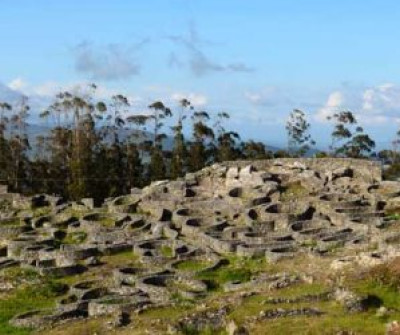
A Guarda, inicio del Camino Portugués por la Costa
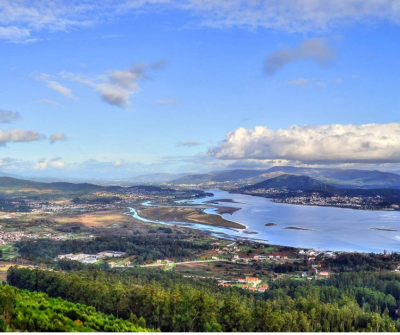
Mirador de Santa Tegra, A Guarda, Camino Portugués por la Costa
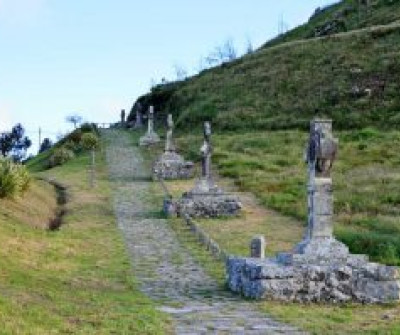
Vía Crucis en el Camino Portugués por la Costa, en A Guarda
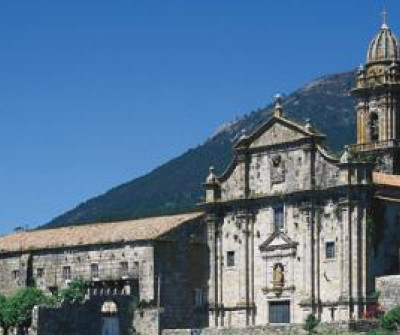
Santa Maria de Oia, punto de paso del Camino Portugués por la Costa
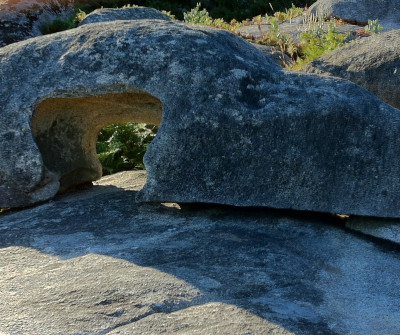
Yacimiento A Cabecia, en el Camino Portugués por la Costa
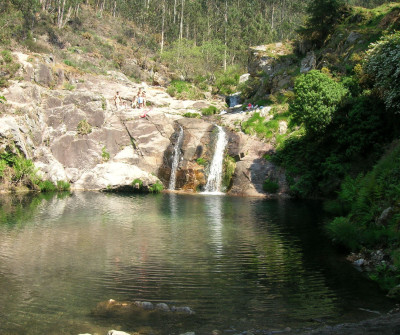


 Filter
Filter